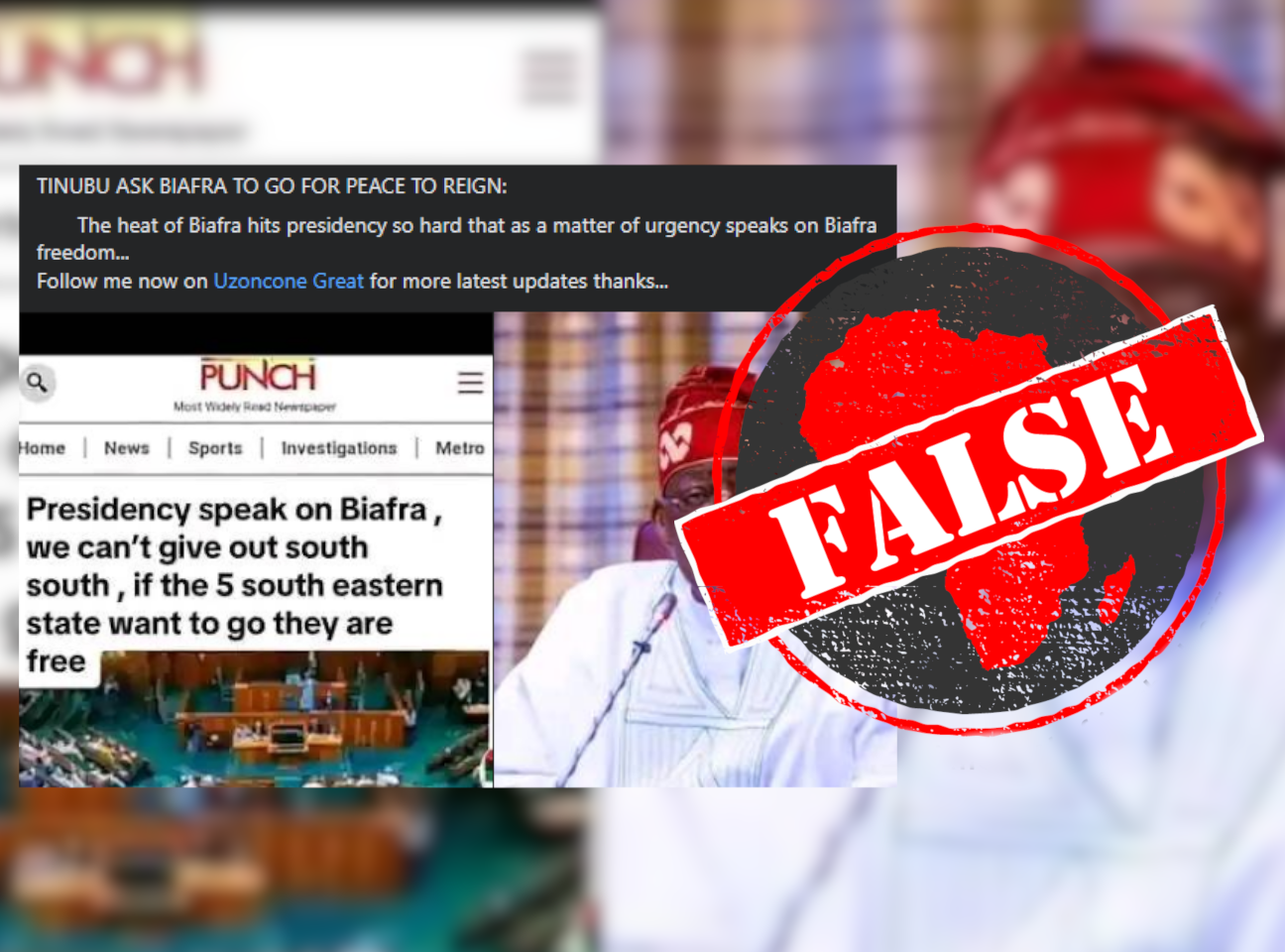IN SHORT: Biafra agitation continues years after a failed attempt to secede from the eastern part of Nigeria. But claims that the country has asked the region to leave are false.
Several posts on Facebook claim that the Nigerian government has agreed to allow the south-eastern states to secede, but will retain the south-south.
One of the posts reads: “TINUBU ASK BIAFRA TO GO FOR PEACE TO REIGN: The heat of Biafra hits presidency so hard that as a matter of urgency speaks on Biafra freedom … ”
It includes a screenshot of an article with the logo of the Punch, attributing the claim to the Nigerian newspaper. The headline in the screenshot reads: “Presidency speak on Biafra, we can’t give out south south, if the 5 south eastern state want to go they are free.”
A picture of the Nigerian Senate in session can also be seen in the screenshot.
The southeast is made up of Abia, Anambra, Ebonyi, Enugu and Imo states, while Akwa Ibom, Bayelsa, Cross River, Delta, Edo and Rivers states make up the south-south region.
Nigeria produces most of its oil in the south-south region and is therefore important to the country’s economy.
The eastern region attempted to secede from Nigeria in 1967 as the Republic of Biafra, but was reintegrated after a bloody 30-month civil war that ended in January 1970.
In recent years, a secessionist group called the Indigenous People of Biafra, or Ipob, has been agitating for the restoration of Biafra. However, Ipob was banned in September 2017 after being declared a terrorist group by the Nigerian government.
Ipob leader Nnamdi Kanu has been detained by the Nigerian government on a range of charges, including terrorism. He remains in prison despite being acquitted by a court in October 2022.
But has the Nigerian government agreed to let its south-eastern region secede? We checked.

No evidence Nigerian government agreed to this
A Google reverse image search of the screenshot in the Facebook post led us to an article in the Punch, headlined: “2027: Bill seeks to bar N’West, S’West, S’South from presidential election.”
A search of the newspaper’s website and X (formerly Twitter) account found no evidence that it published the headline attributed to it in the Facebook posts.
Similarly, we found no evidence of such a statement on Nigeria’s information ministry website and social media handles.
Such a development would have made local and international headlines if it were true. But we found no report of it.
The only news of a bill passed by the Nigerian Senate in early 2024 relates to a commission to manage infrastructure development, including the construction and rehabilitation of roads, houses and other infrastructure in the southeast.
There is no evidence that the government has agreed to allow the south-eastern states to secede.
Republish our content for free
For publishers: what to do if your post is rated false
A fact-checker has rated your Facebook or Instagram post as “false”, “altered”, “partly false” or “missing context”. This could have serious consequences. What do you do?
Click on our guide for the steps you should follow.
Publishers guideAfrica Check teams up with Facebook
Africa Check is a partner in Meta's third-party fact-checking programme to help stop the spread of false information on social media.
The content we rate as “false” will be downgraded on Facebook and Instagram. This means fewer people will see it.
You can also help identify false information on Facebook. This guide explains how.


Add new comment